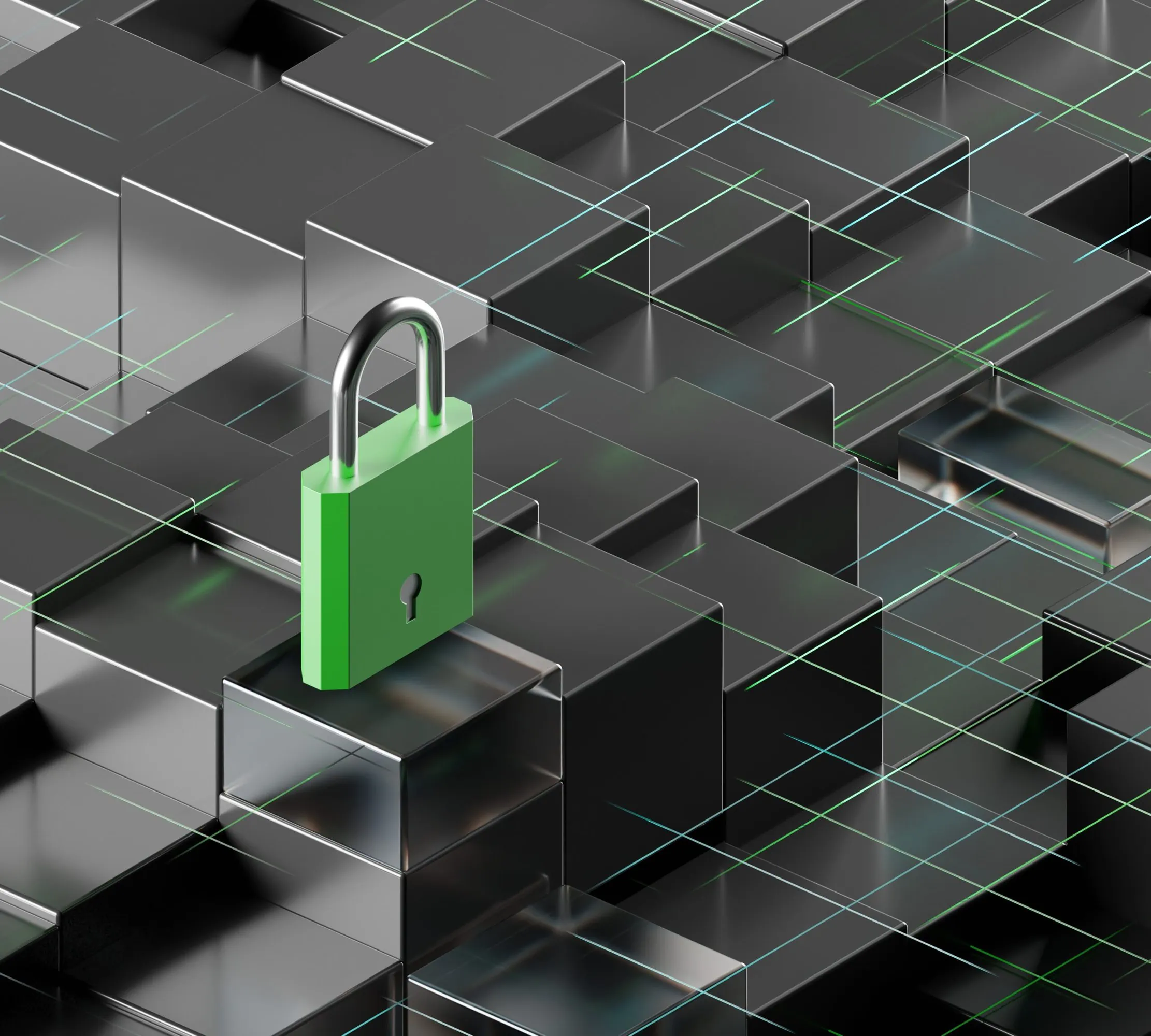Introduction: How to Stay Up to Date with Cyber Security
How to Stay Up to Date with Cyber Security? In today’s digital world, where technology plays a crucial role in our daily lives, it is essential to prioritize the security of our online presence. Cyber security, the practice of protecting computer systems and networks from digital threats, has become increasingly important as cybercriminals continue to evolve their tactics. To stay one step ahead of these threats, it is crucial to stay up to date with the latest developments in cyber security.
Keeping yourself informed about cyber security doesn’t have to be overwhelming or complicated. By following a few simple steps, you can enhance your online safety and protect yourself from potential threats. In this blog post, we will explore effective strategies to stay up to date with cyber security, ensuring that you can navigate the digital landscape with confidence and peace of mind. Let’s dive in!

The Importance of Staying Up to Date with Cyber Security: Safeguarding Your Digital World
In today’s increasingly digital world, staying up to date with cyber security is of utmost importance. With the constant advancements in technology, cyber threats continue to evolve, making it crucial for individuals and businesses to prioritize the protection of their digital assets. By staying informed and implementing necessary security measures, you can safeguard your digital world from potential cyber attacks.
Regularly updating your software and operating systems is a fundamental step in maintaining cyber security. These updates often contain patches and fixes that address vulnerabilities that hackers can exploit. Additionally, keeping your antivirus and anti-malware programs up to date is essential for detecting and removing any potential threats. By staying proactive and vigilant, you can significantly reduce the risk of falling victim to cyber attacks. Furthermore, it is essential to educate yourself and your employees about potential cyber threats and best practices for online safety. This includes being cautious when clicking on suspicious links or downloading attachments from unknown sources. Regularly backing up your important data is also crucial, as it ensures that even if your system is compromised, you can easily restore your information.

Cyber Threat Landscape: Understanding the Evolving Challenges
The cyber threat landscape is constantly evolving, presenting new challenges for individuals and organizations alike. With the increasing reliance on technology and the internet, it has become crucial to understand the risks associated with cyber threats.
Cyber threats refer to malicious activities carried out by individuals or groups with the intent to disrupt, steal, or damage computer systems and networks. These threats can take various forms, including malware, phishing attacks, ransomware, and data breaches. Understanding the evolving nature of these challenges is essential in order to protect sensitive information and maintain the security of digital assets. As technology advances, cybercriminals find new ways to exploit vulnerabilities and target unsuspecting victims. Therefore, it is imperative for individuals and organizations to stay updated on the latest cyber threats and implement effective security measures to mitigate the risks. By being aware of the evolving challenges in the cyber threat landscape, we can better protect ourselves and our digital presence from potential harm.

Cyber Security Best Practices: Essential Steps for Protecting Your Data
Cybersecurity is crucial in today’s digital landscape, where data breaches and online threats are becoming increasingly prevalent. To ensure the safety of your sensitive information, it is essential to follow best practices that can protect your data from cybercriminals. Here are some essential steps you can take to strengthen your cybersecurity defenses.
First and foremost, regularly updating your software and devices is vital. Software updates often include security patches that address vulnerabilities, making it harder for hackers to exploit them. Additionally, using strong and unique passwords for each of your online accounts is essential. Consider using a password manager to generate and store complex passwords securely. Furthermore, enabling two-factor authentication adds an extra layer of security by requiring a second verification step, such as a unique code sent to your phone, when logging into your accounts.
Another crucial aspect of cybersecurity is being cautious of phishing attempts. Cybercriminals often use deceptive emails, text messages, or websites to trick individuals into revealing their sensitive information. Be wary of suspicious links or attachments and verify the authenticity of any requests for personal or financial information. Moreover, regularly backing up your data is essential to mitigate the impact of potential attacks or system failures. Storing backups offline or in the cloud ensures that you can recover your data even if your devices are compromised.

Cyber Security Training and Certifications: Enhancing Your Knowledge and Skills
In the ever-evolving landscape of technology, the need for cyber security professionals has become more crucial than ever before. Cyber attacks are on the rise, and organizations are seeking skilled individuals who can safeguard their sensitive data. One way to enhance your knowledge and skills in this field is through cyber security training and certifications.
By enrolling in cyber security training programs, you can acquire a deep understanding of the latest threats, vulnerabilities, and defense mechanisms. These programs cover a wide range of topics, including network security, ethical hacking, cryptography, and incident response. Through hands-on exercises and real-world simulations, you can gain practical experience to tackle potential cyber threats effectively. Obtaining certifications in cyber security not only validates your expertise but also sets you apart from other candidates in the job market. Certifications such as Certified Information Systems Security Professional (CISSP), Certified Ethical Hacker (CEH), and Certified Information Security Manager (CISM) demonstrate your commitment to continuous learning and professional growth. Employers often prioritize candidates with these certifications, as they provide assurance of your competence in protecting critical information.

Leveraging Technology: Tools and Solutions for Cyber Security Awareness
In the ever-evolving digital landscape, cyber threats have become a growing concern for individuals and organizations alike. To combat these risks, leveraging technology has become essential to ensure robust cyber security awareness. With the right tools and solutions in place, individuals and businesses can better protect themselves from malicious attacks and safeguard their sensitive information. One of the key technologies that play a crucial role in cyber security awareness is antivirus software. This powerful tool helps detect and remove malicious software, such as viruses, worms, and trojans, from computers and networks. By regularly updating and scanning systems, antivirus software provides an additional layer of defense against cyber threats.
Another important technology is a firewall, which acts as a barrier between a trusted internal network and external networks, such as the internet. Firewalls monitor and control incoming and outgoing network traffic, preventing unauthorized access and blocking potentially harmful data packets. By implementing a firewall, individuals and organizations can enhance their cyber security posture and minimize the risk of unauthorized access to their systems. Furthermore, secure password management tools can significantly contribute to cyber security awareness. These tools help individuals create and manage strong, unique passwords for their various online accounts. By using complex passwords and regularly changing them, individuals can mitigate the risk of unauthorized access and protect their personal information.

The Role of Artificial Intelligence in Cyber Security: Advancements and Opportunities
Artificial intelligence (AI) has emerged as a powerful tool in combating the ever-growing threat of cyber attacks. With its ability to process vast amounts of data and identify patterns, AI is revolutionizing the field of cyber security. By analyzing network traffic, AI algorithms can quickly detect and respond to potential threats, minimizing the risk of data breaches and unauthorized access.
One of the key advancements in AI-based cyber security is its ability to adapt and learn from new threats. Traditional security systems often rely on pre-defined rules, which can be easily bypassed by sophisticated attacks. However, AI-powered systems can continuously learn and update their algorithms based on real-time data, making them more effective in detecting and preventing emerging threats.The opportunities presented by AI in cyber security are immense. AI can automate routine security tasks, freeing up human analysts to focus on more complex issues. It can also help in threat intelligence gathering, analyzing vast amounts of data from various sources to identify potential vulnerabilities. Additionally, AI can assist in incident response by providing real-time alerts and recommendations for remediation.

Conclusion: How to Stay Up to Date with Cyber Security
How to Stay Up to Date with Cyber Security? In conclusion, it is crucial to stay up to date with cyber security to protect yourself and your digital information from potential threats. By following a few simple steps, you can significantly enhance your online safety.
Firstly, regularly updating your devices and software is essential. These updates often include security patches that fix vulnerabilities in your system. Keeping your devices up to date ensures that you have the latest protection against emerging threats. Additionally, installing a reliable antivirus program and enabling its automatic updates can provide an extra layer of defense.
Secondly, staying informed about the latest cyber security trends and best practices is vital. Following reputable sources such as cybersecurity blogs, news websites, and official security organizations can help you stay in the know. Educating yourself on common scams, phishing techniques, and online safety tips empowers you to make informed decisions and avoid falling victim to cyberattacks.
Lastly, practicing good password hygiene is crucial. Creating strong, unique passwords for each of your online accounts and regularly changing them is essential. Consider using a password manager to securely store and generate complex passwords. Furthermore, enabling two-factor authentication whenever possible adds an extra layer of security to your accounts.
By following these steps and staying proactive in your approach to cyber security, you can minimize the risk of falling victim to cyber threats. Remember, cyber security is an ongoing process, and staying vigilant is key to protecting your digital life. Stay safe online!






